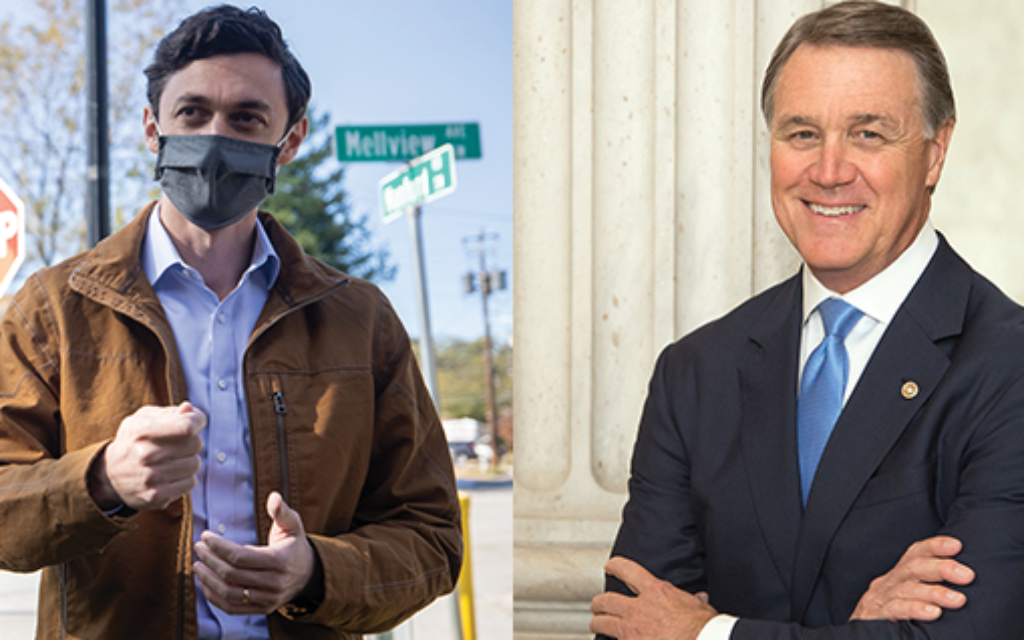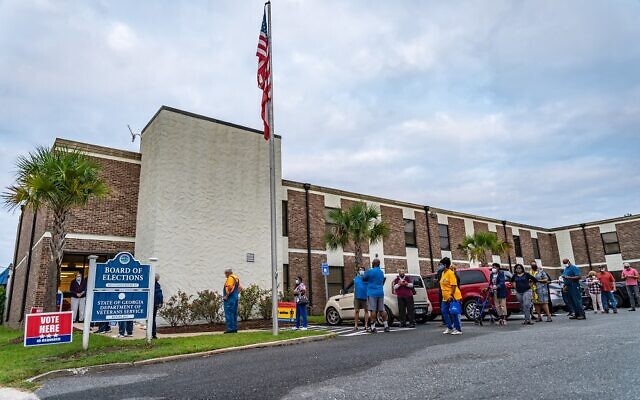2020 Election Season will End in 2021
The Jan. 5 election, highlighted by the contests for both of Georgia’s U.S. Senate seats, might defy the trend of lower turnout in runoffs.
Dave Schechter is a veteran journalist whose career includes writing and producing reports from Israel and elsewhere in the Middle East.
The 117th Congress of the United States of America will be sworn in on Jan. 3, 2021. Two days later, on Jan. 5, Georgians will elect their two U.S. senators.
Back on Nov. 3, the election groundhog popped up, saw a shadow (translation: no Senate candidate winning a majority) and forecast nine more weeks of electioneering. Put another way, Georgia will have an electoral hangover for several days past New Year’s Day.
The eyes of the nation and the world — yes, the world — are on Georgia. At stake is control of the Senate, which, in turn, would determine who chairs powerful Senate committees, the fate of initiatives by president-elect Joe Biden, and such matters as filling vacancies on the Supreme Court of the United States.
Republicans must win at least one of the two seats to retain a narrow majority in the Senate. If both Democrats win, they and independents who caucus with them would hold 50 seats and the Senate would be divided 50-50. The tie-breaking vote would rest with the vice president-elect, Democrat Kamala Harris. Democrats then would hold the White House, Senate and House of Representatives.

In five polls of self-identified likely voters released Dec. 15-21, four gave incumbent Republican Sen. David Perdue leads over Democratic challenger Jon Ossoff ranging from 1 to 4 percentage points, with Ossoff leading by 2 points in the fifth poll. The same four polls placed interim Republican Sen. Kelly Loeffler ahead of Democrat Rev. Raphael Warnock by 1 to 7 points, with Warnock ahead in the fifth poll by 1 point.
If elected, Warnock would be what is believed the state’s first African American senator and Ossoff, the available histories suggest, the state’s first elected Jewish senator and only the second Jew to win a statewide partisan race.
Note: John Sanford Cohen, whose father was Jewish and mother, Episcopalian, was appointed to fill a vacancy and serve in the Senate from 1932-33. Sam Olens was elected attorney general in 2010 and resigned the post in 2016.
President Donald Trump and Vice President Mike Pence have campaigned for Loeffler and Perdue, as Biden and Harris have for Warnock and Ossoff. An estimated $450 million has been spent on advertising during the campaign by the candidates and outside groups.

While nearly all of the runoff attention is focused on the Senate seats, voters also will choose a member of the state Public Service Commission, between incumbent Republican Lauren McDonald Jr. and Democratic challenger Daniel Blackman.
In the weeks leading to Jan. 5, the Senate candidates have waged intense efforts to attract votes from an estimated 90,000 to 100,000 registered Jewish voters. Given that Jews vote at a higher percentage than the population in general, their votes become all the more influential.
The vote in Georgia will be a mix of absentee ballots, early in-person voting (from Dec. 14-Jan. 1) and votes cast on Election Day itself. The Atlanta Journal-Constitution reported that nearly 76,000 newly registered voters had been added to the rolls since the general election, bringing the state to some 7.7 million registered voters.
Turnout in runoffs tends to be significantly less than in general elections, but Georgia may defy that trend. As of Dec. 21, the number of votes already cast — in person or through absentee ballots — was just 6 percent less than at the same point in advance of the general election. More than 1.47 million people already had voted, 61.3 percent through in-person early voting and 38.7 percent by absentee ballots.
A rule passed in November by the state election board allows Georgia’s 159 counties to begin processing — but not counting — absentee ballots two weeks before the Jan. 5 runoff, and requires that this work begin at least one week before the election. The election board also issued a requirement that counties preserve surveillance video of absentee drop boxes for 30 days after Election Day.
In mid-December, a federal judge in Georgia dismissed a suit brought by Loeffler and Perdue, the state Republican Party and the National Republican Senatorial Committee, asking that additional measures to verify signatures on absentee ballots be ordered before counties begin processing those ballots. Another federal judge dismissed a suit seeking to eliminate or restrict the use of drop boxes, and a third judge dismissed a suit that would have barred some newly registered voters from casting ballots.




comments